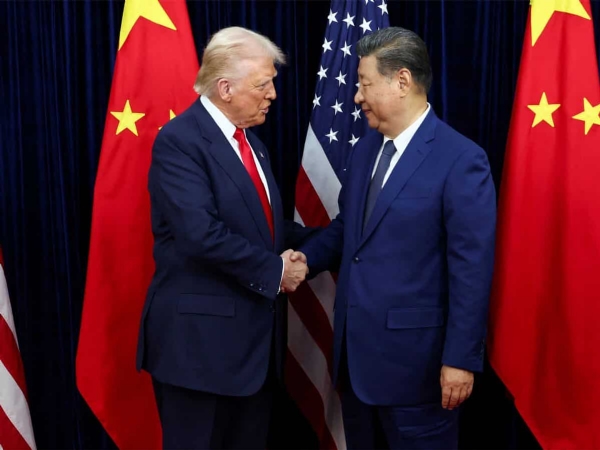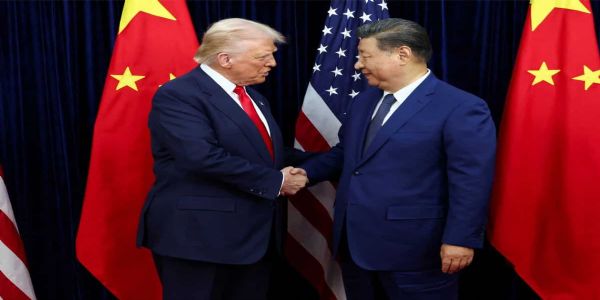
BUSAN, South Korea, 30 October (H.S.): In a pivotal high-stakes summit on Thursday, U.S. President Donald Trump and Chinese President Xi Jinping secured a significant agreement to de-escalate their protracted trade war. Following their first face-to-face meeting in six years, President Trump announced a reduction in U.S. tariffs on Chinese goods and a resolution to the contentious issue of rare earth mineral exports .
The talks, held at a military base in the South Korean port city of Busan, lasted over 90 minutes and concluded with a handshake but no immediate public statements from the leaders.
However, speaking to reporters aboard Air Force One afterward, President Trump described the meeting as amazing and detailed several key outcomes. He announced that U.S. tariffs on Chinese imports would be lowered to 47% from 57% and that a dispute over China's control of rare earth minerals, critical for high-tech manufacturing, had been settled.
Further signaling a thaw in relations, Trump stated that he plans to visit China in April 2026, with a reciprocal visit from Xi to the United States to follow . The leaders also reportedly reached an understanding on combating the flow of fentanyl, a major cause of overdose deaths in the U.S., and agreed to work together on the war in Ukraine .The summit, occurring on the sidelines of the Asia-Pacific Economic Cooperation (APEC) forum, aimed to pull the world's two largest economies back from the brink of escalating economic conflict.
In his opening remarks, President Trump expressed optimism, stating, We're going to have a very successful meeting, I have no doubt, while also calling his counterpart a very tough negotiator. President Xi, in turn, acknowledged that friction between the two powers is normal but stressed that the U.S. and China should be partners and friends.
The breakthrough comes after months of escalating tensions, which saw both nations impose punitive tariffs and threaten further measures that rattled global markets. Earlier this month, China had proposed expanding curbs on its rare earth exports, prompting Trump to threaten a retaliatory 100% tariff on Chinese goods .
U.S. Treasury Secretary Scott Bessent had indicated before the summit that this threat was likely off the table and that a framework for an agreement was in place.While trade dominated the agenda, other areas of strategic tension loomed. Just before the meeting, Trump announced on social media that he had directed the Pentagon to restart nuclear weapons testing.
Despite this, the leaders appeared focused on finding common ground. Notably, Trump mentioned that the sensitive issue of Taiwan's independence did not come up during their discussions.
The meeting also followed reports of a potential deal that would place the social media app TikTok under majority U.S. ownership.The positive developments from Busan sparked a rally in Chinese stocks, with the Shanghai Composite Index climbing to a decade high on investor optimism for a trade truce.
The agreement is seen as a crucial step toward stabilizing a relationship vital to the global economy, though long-term strategic rivalries between the two nations persist.
---------------
Hindusthan Samachar / Jun Sarkar








